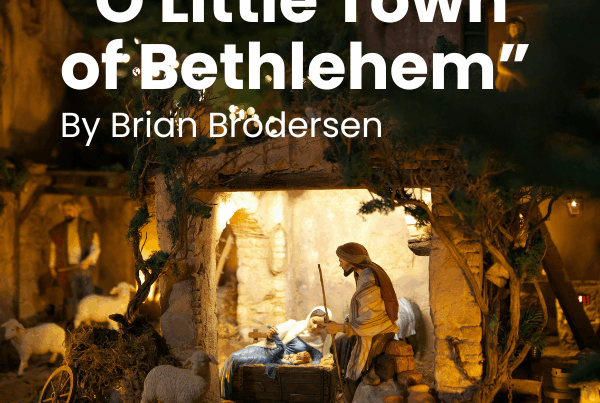
Ireland was always different. It knew nothing of the Roman Empire’s rule or language, remaining the last Celtic bastion in Europe, she proudly stood apart. Here to the classical mind was the very edge of the world, a Barbarian island lost in the mists of the Atlantic Ocean, outside of the Roman Empire and outside of the Church. Christians in the fifth century generally did not want to evangelize beyond the Empire’s frontiers to Barbarians. Whereas the early Christians had suffered martyrdom at the hands of the Roman Empire by the fourth and fifth centuries, Christianity was supported, protected and even privileged by the Empire. Emperor Theodosius’ edict of A.D. 380 established Christianity as the Roman Empire’s official state religion, the kingdom of God was now the Empire of Rome, and to be a Roman was to be a Christian. The state took on the role of “evangelist” in the sense that the Empire’s expanding borders created Christians within it either through conquest or compulsion. No need for missionaries and martyrs; the Legions did just fine.
Too Savage for the Gospel
The prevailing Christian view of the Barbarians as either too savage or brutish to understand the Gospel message was linked to the threat the Barbarians posed to Roman order and civilization. The Spanish theologian Prudentius (c. 400) concluded after some pious reflection that a Barbarian was technically a species of wild animal and not fully human. It was folly to send missionaries to these Barbarians since they were simply too savage to embrace Christianity. Severian of Gabala (c.400), a highly regarded preacher at the imperial court, boldly if wrongly declared, “The gospel has come to the whole world!” Severian was obviously wrong, but when one’s whole world was the Roman Empire, it was easy to forget that Irish Barbarians were part of a very different world.
Ireland in the fifth century was tribal, violent and terrifying. The classical geographer Strabo (d. A.D. 24) described how the natives of Ireland were “wholly savage.” Human sacrifice to the dreaded Celtic gods was still practiced, and Irish warriors proudly hung the severed heads of their enemies from their chariots. Alongside sacrifice and warfare was the concept of one’s honor price. Ireland did not have a system of law based on equal citizenship; rather, every man or woman had their own particular honor price based on wealth, family and occupation. Within this ancient system, a person was said to have what the Irish called “lóg n-enech” (/ˈlōɣː v’ev’əx/)– literally “the price of their face.” In the old Irish language, “honor” and “face” are the same word. If you wronged someone more powerful than you, then you had a legal obligation to make financial restitution to them. The Irish expression for this restitution was “eneclann,” literally to “wash the face” of the one whom you had wronged; that is, to pay to them their honor price. If you could not pay the honor price you owed, it meant you became a “Cimbid” (/ˈkɪm:.bɪd/) In the words of the historian Kathleen Hughes, “The Cimbid was a person whose life was forfeit to another, and who might be imprisoned or slain at will.” The Cimbid was kept in chains as they awaited a certain and cruel death, a death without honor. Besides the Cimbid, there were others in Ireland without an honor price; slaves certainly had none, and neither did the “Cú Glas” (/ˌkuː glɑːz/), or “Grey Wolves”. These were foreigners from outside Ireland. As Grey Wolves, they existed outside the clan without a name and without an honor price.
The First Missionaries to Ireland
This was the Ireland that the first courageous missionaries came to in the fifth century. We know from a reliable, contemporary source (Prosper of Aquitaine) that the first missionary to Ireland was a man called Palladius. He came from Gaul (France) and arrived in Ireland in the year 431. He ministered to a small community of Christians in Ireland (most probably British slaves) and worked to evangelize the pagan Irish. Palladius came from a small circle of Christians in Gaul that rejected the prevailing Imperial Christianity of their day with its refusal to reach out to the Barbarians with the Gospel. Instead, they were convinced of the Church’s call to evangelism, even to pagans outside the Empire. One of the central figures in this movement was Prosper of Aquitaine who wrote the first Christian book addressing the mission to Barbarians outside the Empire; the book was titled The Call of All Nations. Central to the theology of Palladius and Prosper was the supremacy of God’s grace, a grace that “is not content with the boundaries that are Rome’s.” Little is known of Palladius’ mission in Ireland; he would have been viewed as a Grey Wolf, an outsider, a man without an honor price. While Palladius was the first he was by no means the last Grey Wolf to come to Ireland in the fifth century to proclaim the Gospel.
In the latter part of the fifth century, a Briton called Patrick came to Ireland as a missionary. Today we call him Saint Patrick. When he was 16, Patrick had been kidnapped from Britain by Irish raiders and taken to Ireland in chains as a slave. His own account of these events has survived and offers a unique insight into his life and later mission to Ireland. In Patrick’s own words, he was at best a nominal Christian, though having been raised in a Christian home, his youth was one of unbelief and even mockery of the Church. Having lost everything as a slave in Ireland, he turned to the God he had spurned and to his surprise, he came to see that it was God who had pursued Patrick all along.
After six years of slavery, he managed to escape and eventually made it back home to Britain. It was in Britain that he heard the voice of the Irish in a dream calling him, begging him to return to them. Convinced it was God’s call on his life to return to Ireland to preach the Gospel, he entered into ministry training, and after several years, was ordained. The remarkable thing about Patrick, the Roman Briton, is that he chose to lay aside his citizenship and status, as a freeborn Roman, and return to Ireland as a man with no honor price.
The Grey Wolf Evangelist
From what he tells us, ministry in Ireland was dangerous and discouraging. Apart from the dangers he faced from the pagan Irish, he also endured the bitter criticism of the British Church who refused to accept a mission to the Irish Barbarians as appropriate. Patrick writes of “…Many who forbade this mission. They even told stories among themselves behind my back, and they said: ‘Why does he put himself in danger among hostile people who do not know God?’” Why would any Roman risk their life for such as these? Why indeed. Patrick’s answer to the criticism was simply that he “never had any other reason for returning to that nation from which I had earlier escaped, except the gospel and God’s promises.” For Patrick, it was all about the Gospel, that message of grace that had changed him and would ultimately, Patrick believed, change Ireland.
Through it all God preserved Patrick, and in his own words, many thousands came to faith in Christ in Ireland. Patrick’s mission was the opposite of Imperial Christianity; he ministered from a position of weakness, as a man without an honor price, as an outsider, a Grey Wolf. The power of Patrick’s mission was not in the might of the Roman Empire, for Ireland knew nothing of that, nor in the status and privileges of the state Church, for Ireland knew nothing of that too. Instead, the power of Patrick’s mission was the Gospel, the message of God’s love for the lost, be they Barbarian or Roman. As Ireland had no centralized government at this time, the Christian faith was not established from above as an act of state, rather it was established from below, though the life and message of Patrick and the fearless witness of the first generations of Irish Christians, many of whom Patrick tells us, suffered severe persecution for their faith.
The Cimbid King
As early Christians in Ireland read their Latin manuscripts of the Bible, they began to heavily annotate them with translations and commentary in their own Irish language. One such manuscript of Matthew’s Gospel has a curious note written in the margin at Matthew 27:26 “… Then he [Pilate] released to them Barabbas: and having scourged Jesus, delivered him unto them to be crucified.” In the margin of the Bible, the Irish reader simply noted dilse cimbeto, “the penalty of a Cimbid.” For the Irish, the Gospel was the story of God sending His Son, the beloved Son who had the highest of all honor prices, to take our place as a Cimbid, a man handed over to death, a man without an honor price. No one ever spoke of God like this in Ireland until Christianity came. No one ever conceived of the Celtic gods as voluntarily taking the place of a Cimbid.
Grace did not even exist as a word in old Irish, for they never knew it until they heard the Gospel preached.
Early Irish Christians like Blathmac often described Christ as the substitutionary Cimbid. Jesus Christ, so Blathmac wrote, “Was the Cimbid who paid the greatest debt.” To pay what we owed, to restore us to freedom, to break the chains of sin and death, Christ took our place as a Cimbid. Another early Irish theologian, Cummian Fota from Co. Galway, wrote a commentary on Mark’s Gospel around the year 610. Reflecting on the trial of Jesus he wrote:
“The High Priest standing interrogates Jesus but he remained silent…The silence of Christ absolves the excuses of Adam…[Christ is declared guilty] This was so that by the guilt he received He might remove our guilt; that by the blindfold on his face he might take the blindfold from our hearts; that by receiving the hateful spits, he might wash the face of our soul, that by the beating, by which he was struck on the head, he might heal the head of the human race, which is Adam… So that with his cross He might cancel our own crucifixion, and by his death He might destroy our death. …As He said through the prophet: ‘I will be your death, O death, and your destruction, O Hades’ (Hosea 13:14). His reproach has removed our dishonor. His chains have set us free. By the crown of thorns on His head we have gained the diadem of the kingdom. With His wounds we are healed. By his burial we are resurrected. By His descent into grave we will rise to heaven. Foreseeing all this, the prophet of old said, “What shall I render unto the Lord for all his benefits toward me?” (Psalm 116:12).”
The marvel of God’s grace that the Irish encountered is that though they had sinned and dishonored God, it was God in Christ Jesus who set them free by becoming a Cimbid in their place. Instead of demanding His divine honor price, as was His right, He instead washed the face of sinners. That is, He honored those without an honor price by giving all who believe in Him His righteousness, His forgiveness, His honor price. The remarkable story of the first Christians in Ireland is unique in the history of the fifth century. Where the Roman Empire failed to conquer, the Gospel of Grace as preached by Grey Wolves triumphed.
Bibliography
. Cahill, Michael [ed.], Expositio evangelii secundum Marcum, Corpus Christianorum, Series Latina 82, Scriptores Celtigenae 2. Turnhout: Brepols, 1997.
. Carney, James [ed.]. The Poems of Blathmac, Son of Cú Brettan. Irish Texts Society 47. Dublin: Irish Texts Society, 1964.
. Charles-Edwards, T. M. Early Christian Ireland. Cambridge: Cambridge University Press, 2003.
. Charles-Edwards, T. M. “The Social Background to Irish Peregrinatio.” Celtica 11 (1976): 43-59.
. Conneely, Daniel. St. Patrick’s Letters: A Study of their Theological Dimension. Maynooth: An Sagart, 1993.
. Freeman, Philip. Ireland and the Classical World. Austin, TX: University of Texas Press, 2001.
. Hughes, Kathleen. The Church in Early Irish Society. Ithaca, NY: Cornell University Press, 1966.
. Kelly, Fergus. A Guide to Early Irish Law. Dublin: Dublin Institute for Advanced Studies, 1988.
. Prosper. The Call of All Nations. Ancient Christian Writers; the Works of the Fathers in Translation. Vol. 14. Translated by P. De Letter. Westminster, Md.: Newman Press, 1952.
. Stokes, W. and Strachan, J. Thesaurus Paleohibernicus – Vol. 1, A Collection of Old Irish Glosses Scholia Prose and Verse. Dublin: Dublin Institute for Advanced Studies, 1987.






